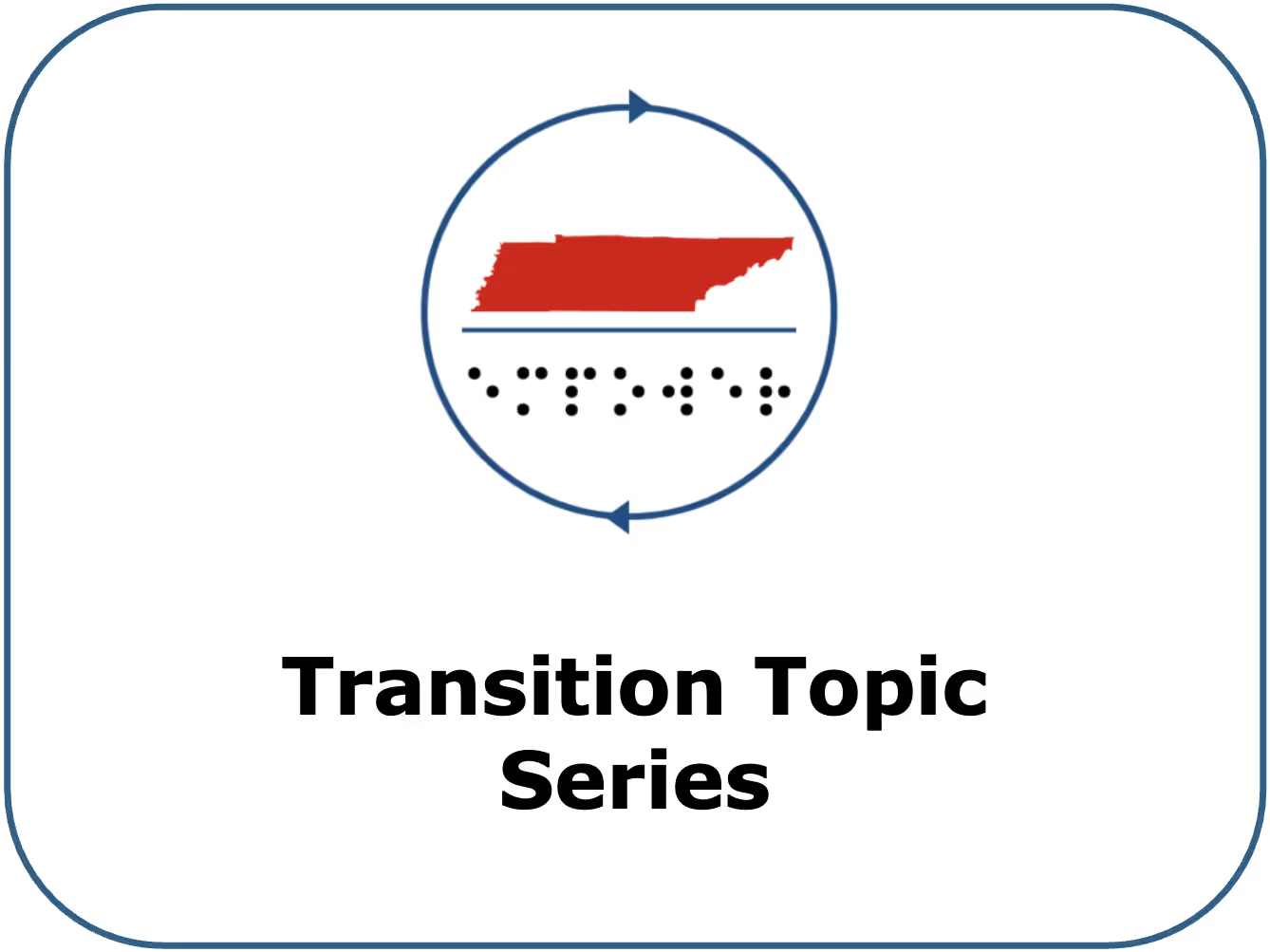Self-Advocacy and Self-Determination Definitions Self-advocacy is the ability to communicate and negotiate your interests and needs. In school, you may have heard this referred to as your PINS (i.e., your preferences, interests, needs, and strengths). Simply stated, self-advocacy means speaking up for yourself. Have you ever spoken up in your Individualized Education Program (IEP) meeting to mention a school subject or task you found difficult? Or maybe you have told someone you don’t need a sighted guide to navigate to your next class because you already know the way. These are examples of self-advocacy. When you feel confident sharing your interests, discussing your goals, and asking for help, you’re practicing self-advocacy.
Self-determination is the ability to turn your PINS into a plan. An example of self-determination would be taking the lead in your IEP meeting to develop a measurable annual goal to help you tackle a task you are having difficulty with. The ability to speak up for yourself and take the lead on developing a plan to reach your goal(s) is something that will help you to feel more prepared and confident to practice self-determination.
Guiding Questions What are some of your interests? These can be things you do for fun, education interests, career interests. What are some of your strengths or things you feel you are good at? Have you ever taken an interest assessment or personality assessment? If yes, share what you learned with a teacher, family member or friend. If not, would you consider taking one? Have you ever taken a career interest assessment? If yes, share what you learned with a teacher, family member or friend. If not, would you consider taking one? What support do you think you need to be successful? What support and/or accommodations help you best? How might you communicate about your support needs in a postsecondary or employment setting? In what ways have you participated in your own IEP meeting? What do you know about disability rights and disability laws? Resources Just like learning any skill, it takes time and effort to develop the ability to practice self-advocacy and self-determination. To help with this, we encourage you take EMPOWER VI’s short course called: Self-Advocacy and Self-Determination- for Students . After completing this course, you will:
Understand self-advocacy and self-determination. Identify your personal interests, strengths, and supports that help you best. Recognize situations in which self-advocacy and self-determination are important. Develop a one-page profile to help you practice your self-advocacy and self-determination skills. Additional Resources:
Learning to Self-Advocate – Perkins School for the Blind This guide demonstrates how students can learn to self-advocate. The resource was written from the perspective of a student with low vision whose IEP goals include self-advocacy.
Self Advocacy - ConnectCenter (aphconnectcenter.org) This resource offers opportunities to learn about your rights and methods for communicating your needs to others.
Transition TN offers several resources of self-advocacy including Self-Advocacy Apps and Instruction in Self-Advocacy
The Self-Determination Inventory: Student Report (ku.edu) This quick survey (10 minutes) asks you how you feel about making choices, setting goals, and making decisions to help determine your level of self-determination. For the most part, this survey is screen-reader accessible and can be completed with a keyboard (arrow keys). The results are also screen-reader accessible. However, the drop-down answer menu is not screen-reader accessible. It will only read aloud the answer choice that is selected, not the list of choices. We recommend completing this assessment with support from a teacher or family member if you use a screen reader.
Free Personality Test | 16Personalities This personality assessment is based on the framework of the Myers-Briggs Type indicator (MBTI) and it provides insight into how a person makes decisions, interacts with others, and takes in information. Keyboard navigation with a screen reader is possible.
ONET Career Interest Profiler This assessment can help you find out what your interests are and how they relate to the world of work. Note: this assessment may not be fully screen reader accessible. We recommend that you complete this assessment with support.






